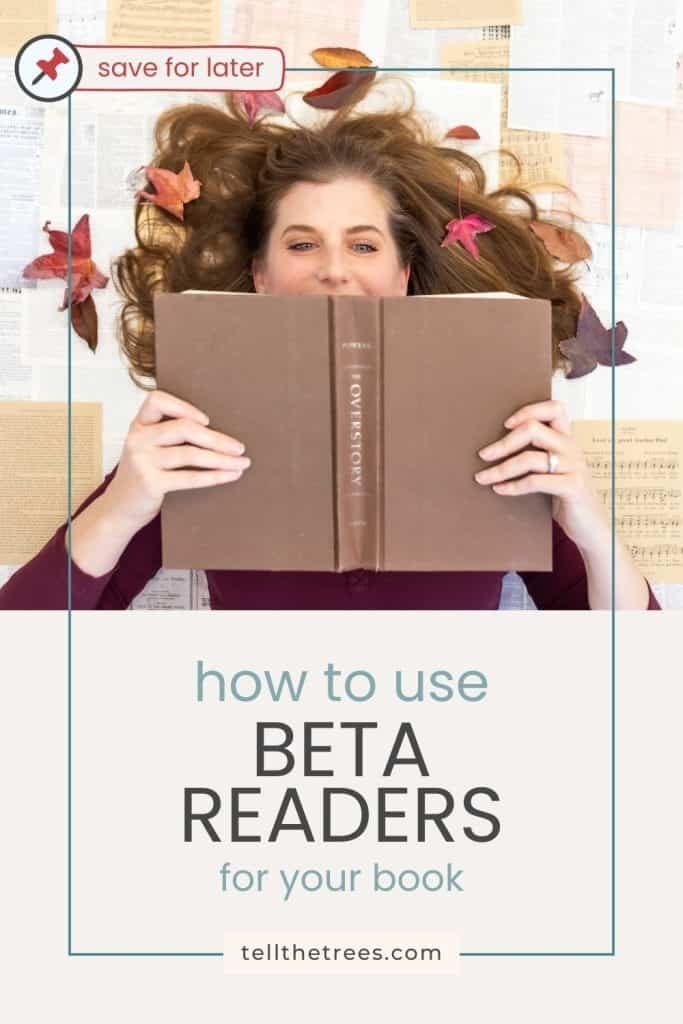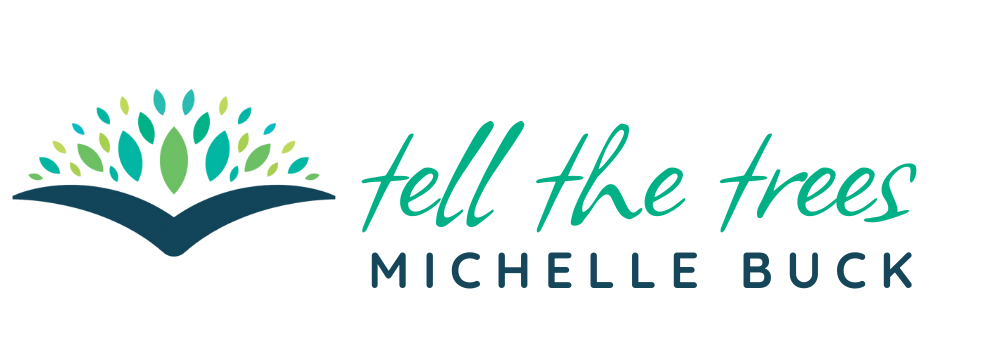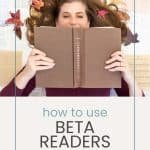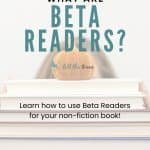by Michelle
Share
by Michelle
Share

Beta Readers are one of those terms you might have heard before as a new author.
So what are they and what do they do?
When you’re writing a book, it’s easy to get so close to your own work that you might miss important details or have trouble seeing it from a reader’s perspective. That’s where beta readers come in!
Beta Readers are like your book’s best friends – they read your manuscript before it’s published and give you valuable feedback to help make your story the best it can be. They’re not professional editors, but they are avid readers who can provide a fresh set of eyes and honest opinions on your work.
In this post, we’ll dive into the role of Beta Readers and explore how they can help you refine your manuscript and get it ready for publication.
What do Beta Readers Do?
Let’s look more specifically at the role beta readers play in helping you refine your book before publication.
First, Beta Readers provide valuable feedback on your story’s flow. They’ll read your book to make sure it flows well and keeps readers hooked.
Also, Beta Readers will really look at how your characters develop. Are your characters relatable, well-rounded, and realistic? Beta Readers offer feedback to make your characters interesting and memorable.
Beta Readers are a tremendous help in identifying plot holes. They’ll check your story thoroughly, making sure there aren’t any mistakes or missing details. With a fresh set of eyes, beta readers ensure your plot makes sense and is airtight.
Also, Beta Readers will check how your story makes them feel. Does your story evoke the right emotion? Do readers understand the feelings you are trying to convey? This feedback can help you refine your writing to create a more powerful reading experience.
Finally, Beta Readers offer general impressions and constructive criticism. They’ll provide an honest, reader-centric perspective on your manuscript, highlighting areas that work well and offering suggestions for improvement.
Beta Readers offer a fresh viewpoint and focus on key aspects, such as story flow, character development, plot consistency, reader engagement, and emotional impact. Beta Readers offer ideas and feedback so you can create a book that resonates with your audience. For non-fiction, they can point out ineffective arguments or points that are clear and concise, making it understandable for the reader.

Beta Reader vs. ARC Reader
If you’ve been in reading and book circles, you’ve probably heard the term ARC Readers. ARC stands for Advance Reader Copy. Beta Readers and ARC Readers are different because ARC Readers are reviewing the finished, published book. Beta Readers are still reading the book in its draft form. ARC Readers read a book that has undergone editing, rewriting, and formatting. They often get the book free for writing an honest review.
Authors form a group of ARC Readers to read and review their book in advance, as good reviews are crucial for its popularity. When the book has gone “live”, hopefully the author has a handful of good reviews to make it easier for those looking to purchase the book.

Where to Find Beta Readers
Most often, authors use their friends and family as Beta Readers. While this is acceptable, your efforts will get the best results if you find people in the niche you are writing in. If you choose readers who already read similar books such as yours, they will know what to look for and offer feedback that makes sense.
You can also find readers in writing groups online or in-person. Stay connected to authors who take classes or join groups that you are in. You might even ask to review each others books. Build connections and use them to help each other. In addition, many authors find connections through writing conferences.
Here are a few other places you could find Beta Readers:
Critique Circle offers a vibrant community of writers that work together to improve their writing. You critique (called “critting” on their site) their work and in turn, they’ll do the same for you. In addition, there are forums on almost any topic.
Reddit Beta Readers Community connects authors with Beta Readers that will offer feedback and critiques. This platform seems to be geared towards fiction and has around 29k subscribers.
Absolute Write is comprehensive informational website and community for writers of all levels and genres. There is an active online community of writers and publishing professionals.
This service is for those that want to hire a Beta Reader. It doesn’t come cheap – anywhere from $80 to $500 is the going rate. They will, however, offer a high detailed report of their critique, which is a valuable tool in creating your book with the best results.
WattPad is all about socializing and connecting with other writers and readers. On the platform, you can follow other writers and read their work, as well as engage in conversations and ask questions. The platform is great for fiction authors who are willing to share their writing on a public platform and get feedback.
Social Media
Depending on your niche, you can try to find Beta Readers through hashtags and accounts in the writing community. Learn more how authors can use Tik-Tok.
Steps for Finding Beta Readers
Do some research and find out where your best audience would be. For instance, for non-fiction writers, you might find an audience on Facebook, Twitter, or even Tik-Tok. Fiction readers might find their audience more where younger audiences hang out, such as Tik-Tok, WattPad, or Instagram.
Once you find where your audience is, follow potential Beta Readers. You can do this by searching for related hashtags.
Kristen Kiefer teaches self-editing and writing courses on her website, ShesNovel.com and suggests following at least thirty potential Beta Readers. She notes, “If you reach out to all and only a quarter accept, you’ll still have a fantastic group of beta readers to critique your novel.”
Kristen also suggests interacting with these potential readers by liking and commenting on their posts and statuses. Be genuine and offer valuable comments, focusing on building a relationship with the reader.
Once you’ve spent time getting to know them and offering genuine comments and liking their posts, you can reach out and ask if they’d be willing to be a Beta Reader for your book. While not everyone will accept this, you can find some who will. Sourcing your Beta Readers from the writing community is one of the best ways to find the help you need for your book.
Approaching Beta Readers
When you approach your potential Beta Reader, offer them a list of considerations or questions you’ll want them to look at while reading your book. It’s also important not to give them your very first draft of your book. Read through it yourself a few times and then have one more person read through it as well (sometimes called Alpha Readers).
The manuscript you give to the Beta Reader does not have to be finalized, prettied up, or ready for publishing, but it also shouldn’t be a giant mess either.
Also mention to the Beta Reader when you would like the feedback back from them. This will help them to decide if they have time to read your book and offer suggestions in that time frame.
HeyBeta is a paid platform for authors, but is free for readers and helps you organize your communications with Beta Readers. This platform does not find Beta Readers for you, but it helps with organizing and review process. You can invite new readers and it’s easy to invite multiple readers at once, with a personal message and specific instructions of what kind of feedback you’re looking for. Each reader will then get an email, with a unique sharing link they can use to access your book.
Questions For Beta Readers
When you ask a Beta Reader to read and offer feedback, you should offer some questions for them to consider. Otherwise you might get “I liked it. It was a good read.” That’s not overly helpful.
Here are some questions you could give to your readers:
Non-Fiction Questions
- Is the book’s main argument or purpose clear and well-defined?
- Does the book effectively communicate its intended message to the target audience?
- Is the information presented in a logical and easy-to-follow manner?
- Are the chapters well-organized and do they flow smoothly from one to the next?
- Is the writing style engaging, clear, and appropriate for the subject matter?
- Are the examples, case studies, or anecdotes used effectively to illustrate key points?
- Does the author provide sufficient evidence to support their claims or arguments?
- Are there any sections that seem unclear, confusing, or in need of further explanation?
- Are there any noticeable gaps in the information presented or topics that should be addressed?
- Is the book’s length appropriate for the subject matter, or does it feel too long or too short?
- Are the visuals (charts, graphs, images) used effectively and do they enhance the reader’s understanding?
- Does the book provide practical takeaways or actionable advice for the reader?
- Are there any factual errors or inconsistencies that need to be addressed?
- Does the book have a satisfying conclusion that ties together the main points?
- Based on the content, would you recommend this book to others interested in the subject?
Remember, these questions serve as a starting point, and you may want to tailor them to your specific non-fiction book and its subject matter.
Fiction Questions
- Did the story hold your interest from the beginning to the end? If not, where did it lag?
- Are the characters believable, relatable, and well-developed? Did you connect with them emotionally?
- Is the dialogue natural, engaging, and true to each character’s personality?
- Is the plot well-paced, with a good balance of action, tension, and character development?
- Are there any plot holes or inconsistencies in the story that need to be addressed?
- Is the world-building effective? Can you visualize the settings and imagine the story’s universe?
- Are the descriptions vivid and immersive without being overly lengthy or distracting?
- Does the story evoke a strong emotional response? Did you find yourself laughing, crying, or feeling anxious at appropriate moments?
- Are there any sections or chapters that feel unnecessary or slow down the story’s momentum?
- Is the point of view consistent and effective throughout the narrative?
- Are the themes and messages of the story effectively conveyed through the characters and plot?
- Is the writing style engaging, clear, and appropriate for the genre and target audience?
- Were there any moments of confusion or disorientation while reading the story?
- Does the ending feel satisfying and well-executed? Does it tie up loose ends and provide closure?
- Based on the overall reading experience, would you recommend this book to others who enjoy the genre?
Adapt these questions to your genre and audience and the subject matter in your book.
Reader Feedback and Editing Your Book
The following list can help you refine and finalize your book with the feedback you’ve received from your Beta Readers.
- After your receive feedback from your readers, gather all feedback and compile it into one place, such as a spreadsheet. You could also divide the feedback by chapters or themes.
- Look for patterns such as recurring comments. If you have multiple Beta Readers saying the same thing about your book, this is where you want to take a closer look to address it.
- Consider your vision for your book and then evaluate your feedback, piece by piece. Does the feedback improve the vision for your story or concept?
- Create a plan to fine-tune your book. Prioritize the changes based on the amount of work required and their level of importance. Focus on the major issues first such as plot holes or structural problems.
- Revise and edit your manuscript based on the feedback and your own vision for the book. Trust your instincts as an author, but be willing to look at all feedback objectively. If anything is confusing, reach out to the reader for more feedback and clarification. Make all changes and revisions.
- Reread your book and continue to edit if necessary. Use the self-editing checklist and prepare your book for final draft. (Next steps would be to hire an editor and proofreader.)
- When you consider a change to your book, you don’t have to change everything just because one reader found fault with it. You’ll need to evaluate what feedback helps your book and what does not.
Show Your Gratitude to Beta Readers
When your Beta Readers offer feedback, show gratitude for their critique. Even if you don’t like what they have to say or find yourself taking it personally, take a step back and look at the big picture.
When your book is ready for prime-time, send your Beta Readers a free copy. Or if they are looking for readers, offer to read their book and critique it. This will be helpful especially if you write more books and need more Beta Readers.
Conclusion
It takes time to find Beta Readers who will not only read your book, but offer suggestions that will help you publish the best version of your book. Look for Beta Readers online or in-person in your writing circles and communities. If you prefer, you can also hire it out, but you’ll only be hiring for one reader. When you find a Beta Reader, offer questions that will help you fine-tune your writing. Offer to critique their books as a thank-you, or send them a free copy of your published book. Keep your Beta Readers in mind for future projects and continue to relate to them on social media and groups.
And don’t forget to have fun writing your book!
Sources:
Tell the Trees is supported by its readers. When you make a purchase using links on this site, it may result in affiliate commission. Please visit my affiliate disclosure page for more information.
Let's Discuss It
The EU Accessibility Act officially kicked in on June 28, 2025, and that means it's being enforced right now. Here's what to expect for self-publishing.
Sometimes what we call perfectionism is just fear of rejection in disguise. We keep our work hidden because putting it out there means people can judge it.
Ever wonder why some books take off with book sales while others collect digital dust? When it comes to book marketing, I’ve noticed the same problems pop up again and again. Let me walk you through a real example that perfectly illustrates what NOT to do—and more importantly, how to fix it. The Post &
D2D for print books will not replace Amazon KDP for most authors—the royalty difference is just too significant if you're primarily selling direct to consumers online. But it's not supposed to replace Amazon; it's supposed to complement it.










